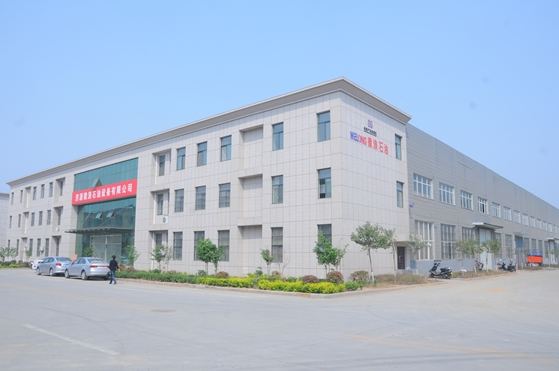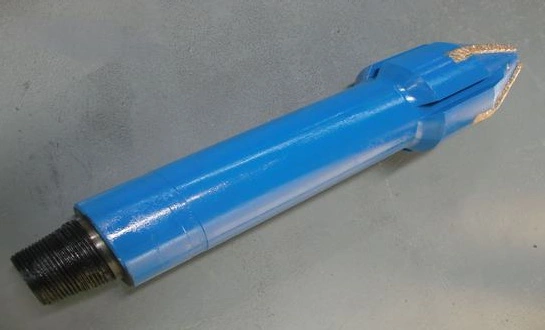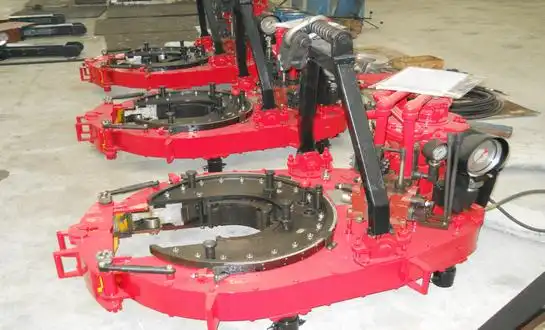Why is custom roll manufacturing essential for specialized industries?
Enhancing Operational Efficiency
Custom roll manufacturing plays a critical role in specialized industries, directly affecting their operational efficiency. Tailored rolls are specifically designed to meet the unique requirements of each process, ensuring that they perform optimally under the conditions of the operation. When rolls are perfectly suited to their specific applications, they reduce the risk of production delays or bottlenecks, which can otherwise disrupt the workflow and hinder overall performance. This customized approach leads to smoother operations, allowing industries to maximize their throughput while minimizing downtime. The ability to optimize roll design for a particular production line also helps reduce material waste, contributing to higher productivity and greater cost-effectiveness in the long run.
Addressing Unique Material Challenges
Every industry works with different materials, each presenting its own set of challenges. Custom mill rolls are engineered to effectively handle the particular characteristics and stresses of these materials. For instance, industries that process delicate paper products need rolls that can maintain smooth surfaces to avoid damage, while those working with hard metals require rolls that can withstand the high pressures and wear associated with shaping tough materials. Custom rolls are built with the necessary strength, durability, and precision to meet these specific needs, ensuring that they can handle the challenges presented by each material. This not only improves the overall performance of the production process but also reduces wear on other equipment, extending the lifespan of the entire production line.
Improving Product Quality and Consistency
Custom roll manufacturing enables industries to achieve higher levels of product quality and consistency by precisely tailoring roll specifications. Factors such as surface finish, hardness, and geometry can be adjusted to meet exact requirements, ensuring that the final product aligns with stringent quality standards. In industries where even minor variations in product characteristics can significantly impact the final output—such as in the production of high-quality paper or precision-engineered metal components—this level of precision becomes crucial. Custom rolls help minimize inconsistencies, ensuring that the products produced are uniform, meet high standards, and are free from defects. This results in better overall quality, enhanced customer satisfaction, and a stronger reputation in the marketplace.
Tailored Roll Solutions for Unique Industrial Requirements
Customizing Roll Dimensions and Profiles
One of the primary advantages of custom roll manufacturing is the ability to tailor roll dimensions and profiles to exact specifications. This customization is crucial for industries that require rolls of non-standard sizes or unique shapes to accommodate specific machinery or processes. For instance, the paper industry might need rolls with precisely calculated crowns to ensure even pressure distribution, while the steel industry might require rolls with specialized grooves for texturing metal surfaces.
Engineering Surface Finishes for Specific Applications
The surface finish of a roll plays a significant role in its performance and the quality of the end product. Custom roll manufacturing allows for the engineering of specific surface finishes tailored to particular applications. This could involve creating micro-textures for improved grip in printing processes, mirror-like finishes for producing glossy materials, or roughened surfaces for better material handling in certain manufacturing processes. The ability to fine-tune surface characteristics ensures that mill rolls perform optimally in their intended applications.

Integrating Advanced Materials and Coatings
Custom roll manufacturing often involves the integration of advanced materials and coatings to enhance performance and durability. This might include using composite materials for lighter weight and improved heat resistance, or applying specialized coatings to increase wear resistance and reduce friction. For example, ceramic coatings might be applied to rolls used in high-temperature environments, while chrome plating could be used to improve corrosion resistance in rolls exposed to harsh chemicals.
Selecting Materials for Optimal Roll Durability and Efficiency
Analyzing Operational Conditions
The process of selecting the right materials for custom rolls begins with a comprehensive understanding of the specific operational conditions they will face. Factors such as temperature, pressure, speed, and exposure to various chemicals or abrasive substances must all be carefully considered. For instance, rolls used in industries dealing with high-temperature environments, like steel processing, need to be made from materials that offer excellent heat resistance and thermal stability. On the other hand, rolls used in environments where they are exposed to corrosive chemicals require materials that possess superior chemical resistance. By thoroughly analyzing the operational conditions, manufacturers can ensure that the custom rolls will perform reliably, preventing premature failure and enhancing the efficiency of the production process.
Balancing Hardness and Toughness
Another critical aspect of selecting the right material for custom rolls is achieving the ideal balance between hardness and toughness. Hardness is essential for ensuring the roll's ability to withstand wear and maintain surface quality during prolonged use. Toughness, on the other hand, is crucial for preventing fractures or chipping under the mechanical stress that mill rolls often endure during operation. Materials such as high-chromium steel and tungsten carbide composites are frequently used in custom rolls because they provide a favorable balance of both hardness and toughness. These materials offer excellent wear resistance while maintaining the necessary strength to resist cracking, making them ideal choices for rolls used in demanding industrial applications.
Considering Thermal Properties
In operations where rolls are exposed to extreme temperatures or rapid temperature fluctuations, the thermal properties of the material become a significant consideration. Materials with high thermal conductivity can dissipate heat efficiently, reducing the risk of thermal damage and ensuring that the rolls maintain consistent performance. Conversely, in certain applications, it may be beneficial to choose materials with insulating properties to help regulate specific temperature conditions. Advanced ceramics or composite materials are often selected for their unique ability to manage heat in specialized applications, offering thermal stability and resilience. The careful consideration of thermal properties in the material selection process ensures that custom rolls will perform optimally, even in environments where temperature control is critical.
Source: CHINA WELONG-Oilfield tools Manufacturer
FAQ about Mill Rolls
What are the common types of mill rolls?
Mill rolls come in various types, each designed for specific applications. Some common types include:
1. Work rolls: Used directly in contact with the material being processed.
2. Backup rolls: Support work rolls and distribute the load.
3. Intermediate rolls: Used in multi-roll configurations for additional control.
4. Leveler rolls: Used in flattening or straightening processes.
5. Bridle rolls: Control tension in strip processing lines.
How often should mill rolls be refurbished?
The frequency of mill roll refurbishment depends on several factors, including the type of material being processed, operational conditions, and the specific roll type. Generally, work rolls may require refurbishment every few weeks to months, while backup rolls might last several months to a year before needing attention. Regular inspections and monitoring of roll performance are crucial in determining the optimal refurbishment schedule.
What are the benefits of roll refurbishment versus replacement?
Roll refurbishment offers several advantages compared to complete replacement. It is often more cost-effective, as it is typically less expensive than purchasing new rolls. Additionally, refurbishment can reduce downtime, as it is usually quicker than waiting for new rolls to be manufactured. This process also provides environmental benefits by extending the life of existing equipment and reducing waste. Moreover, refurbishment presents an opportunity for upgrades, allowing for improvements in roll design or materials. Lastly, it enables operators to continue working with familiar equipment, maintaining consistency and efficiency in their operations.
In conclusion, custom roll manufacturing and refurbishment are essential for optimizing industrial processes across various sectors. By tailoring rolls to specific requirements, businesses can enhance efficiency, improve product quality, and extend equipment lifespan. As industries continue to evolve, the demand for specialized roll solutions is likely to grow, driving further innovations in manufacturing and refurbishment techniques. For those seeking expert guidance in custom roll solutions, Welong offers comprehensive services tailored to diverse industrial needs. To learn more about our custom mill roll manufacturing and refurbishment services, please contact us at oiltools15@welongpost.com.





